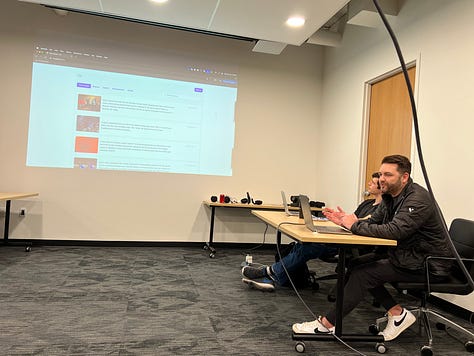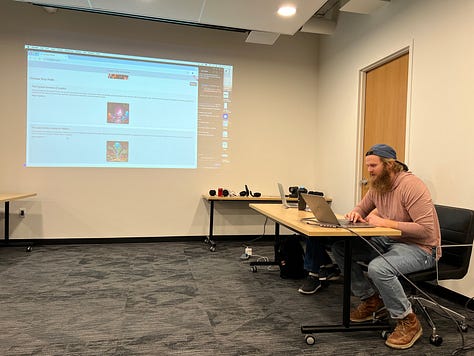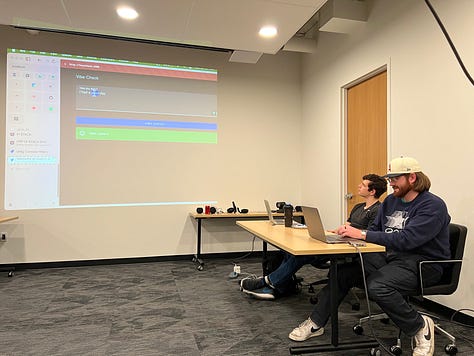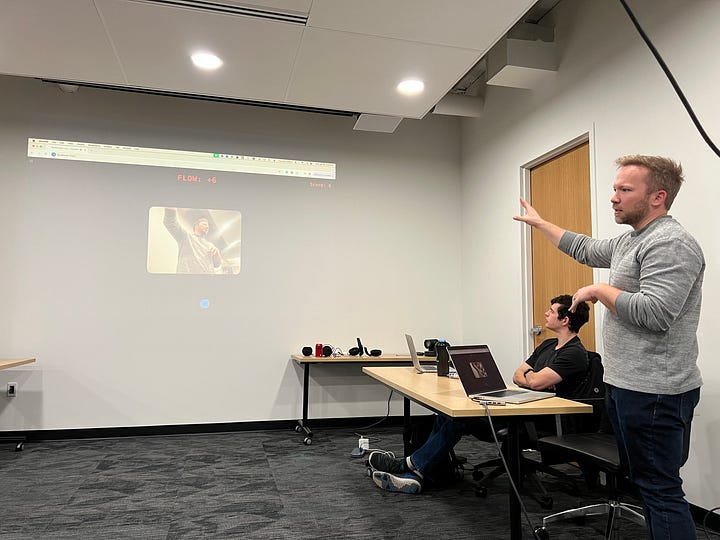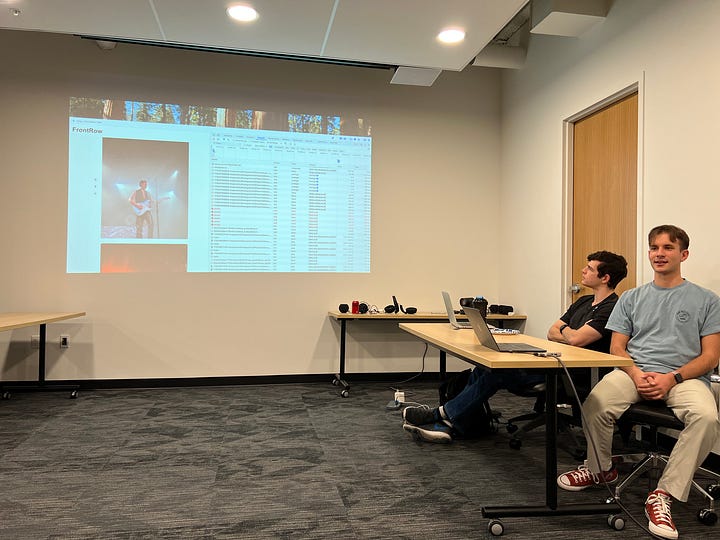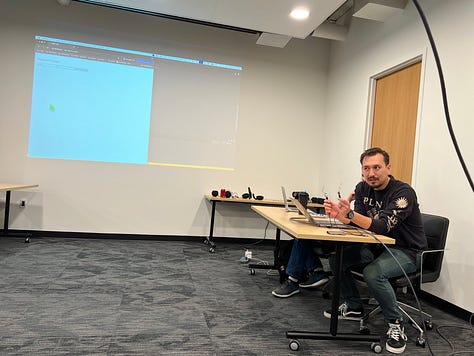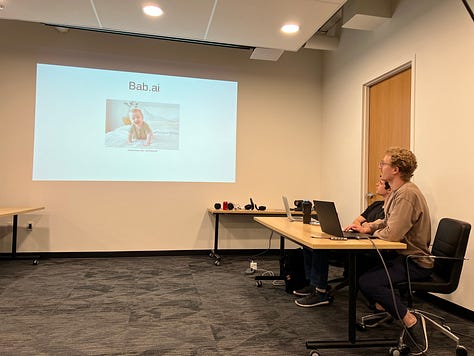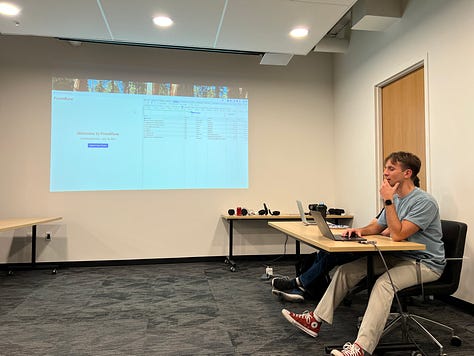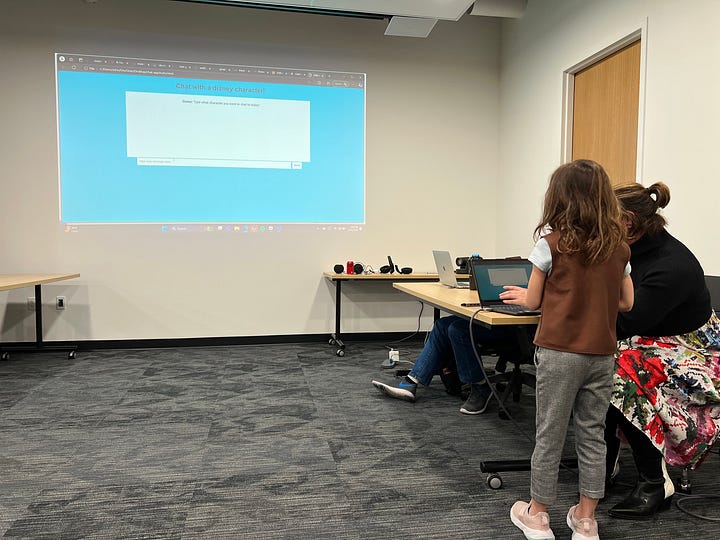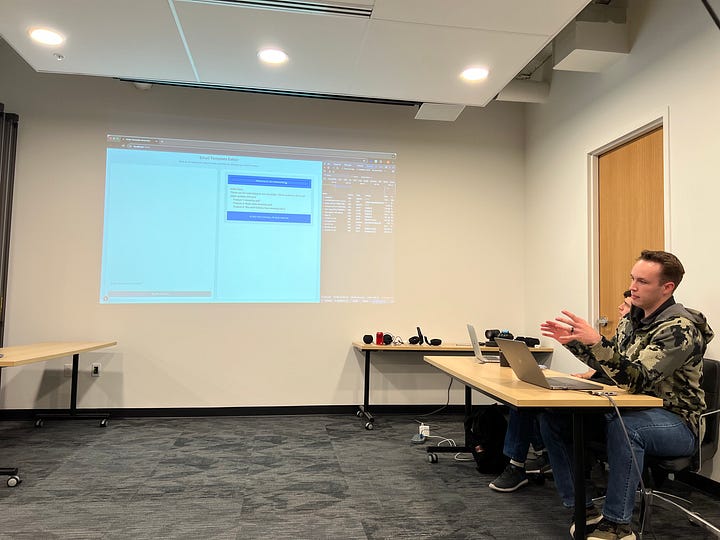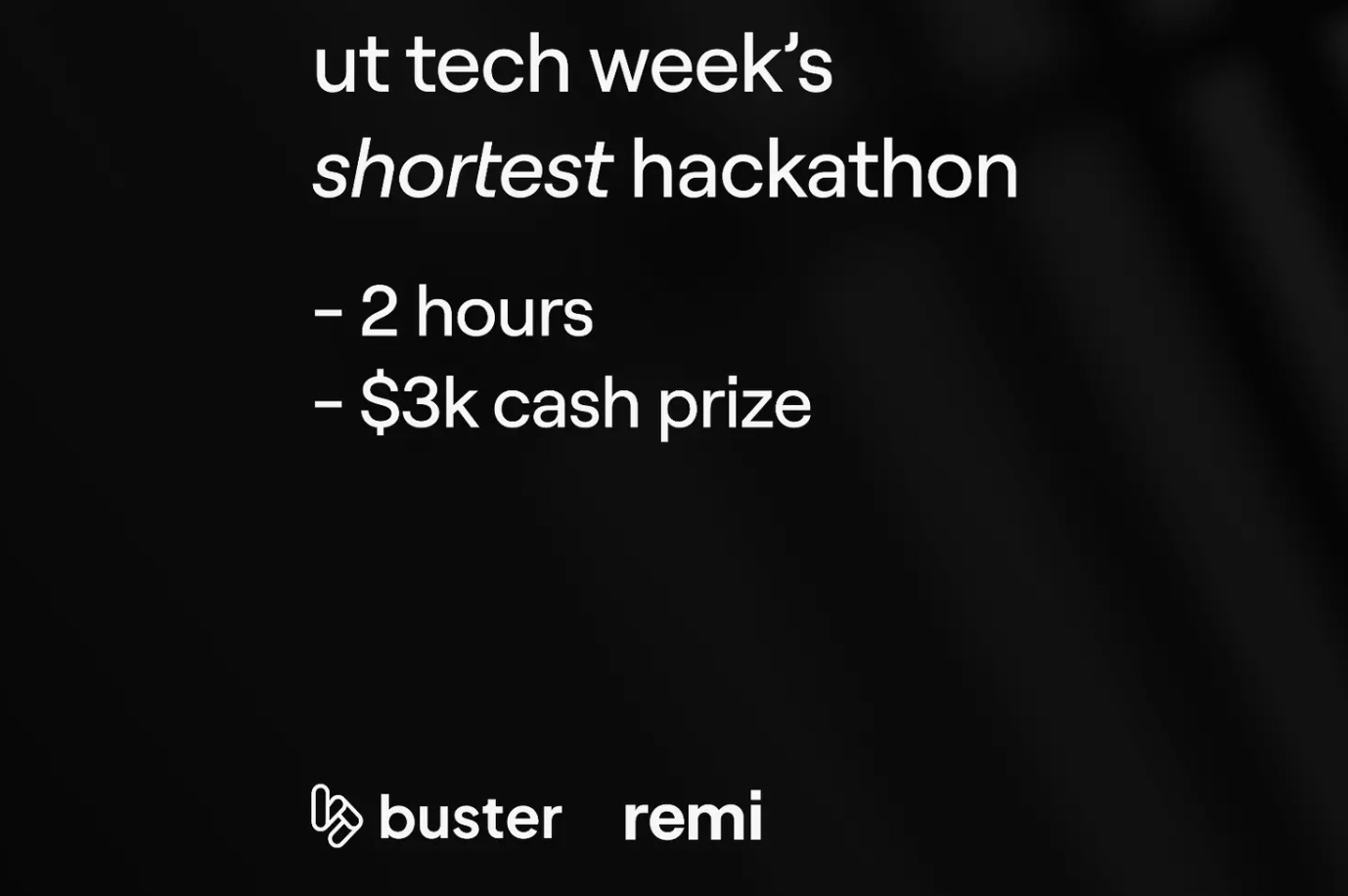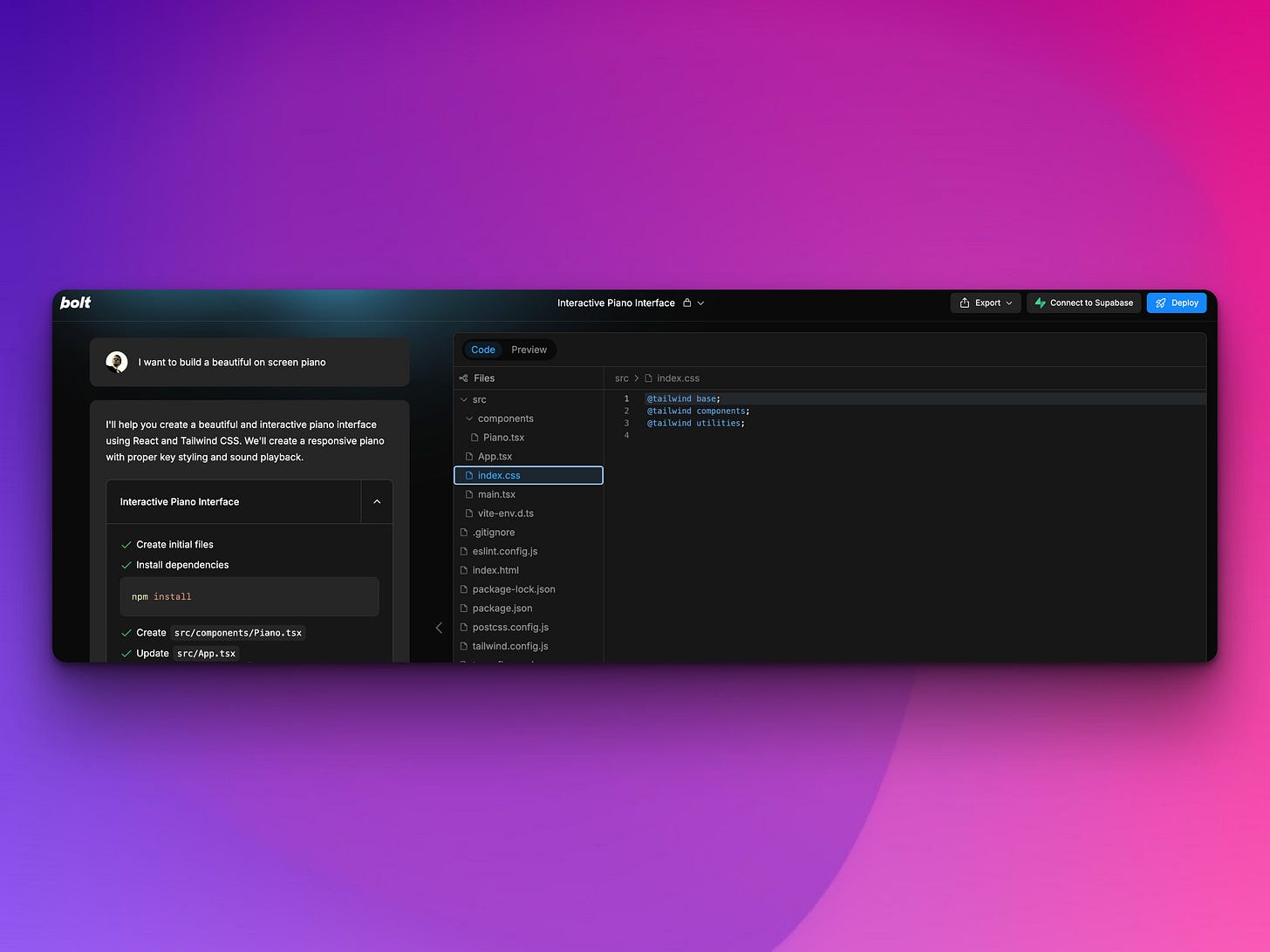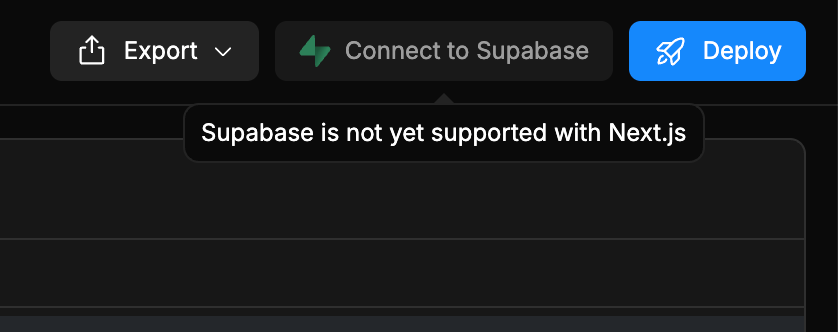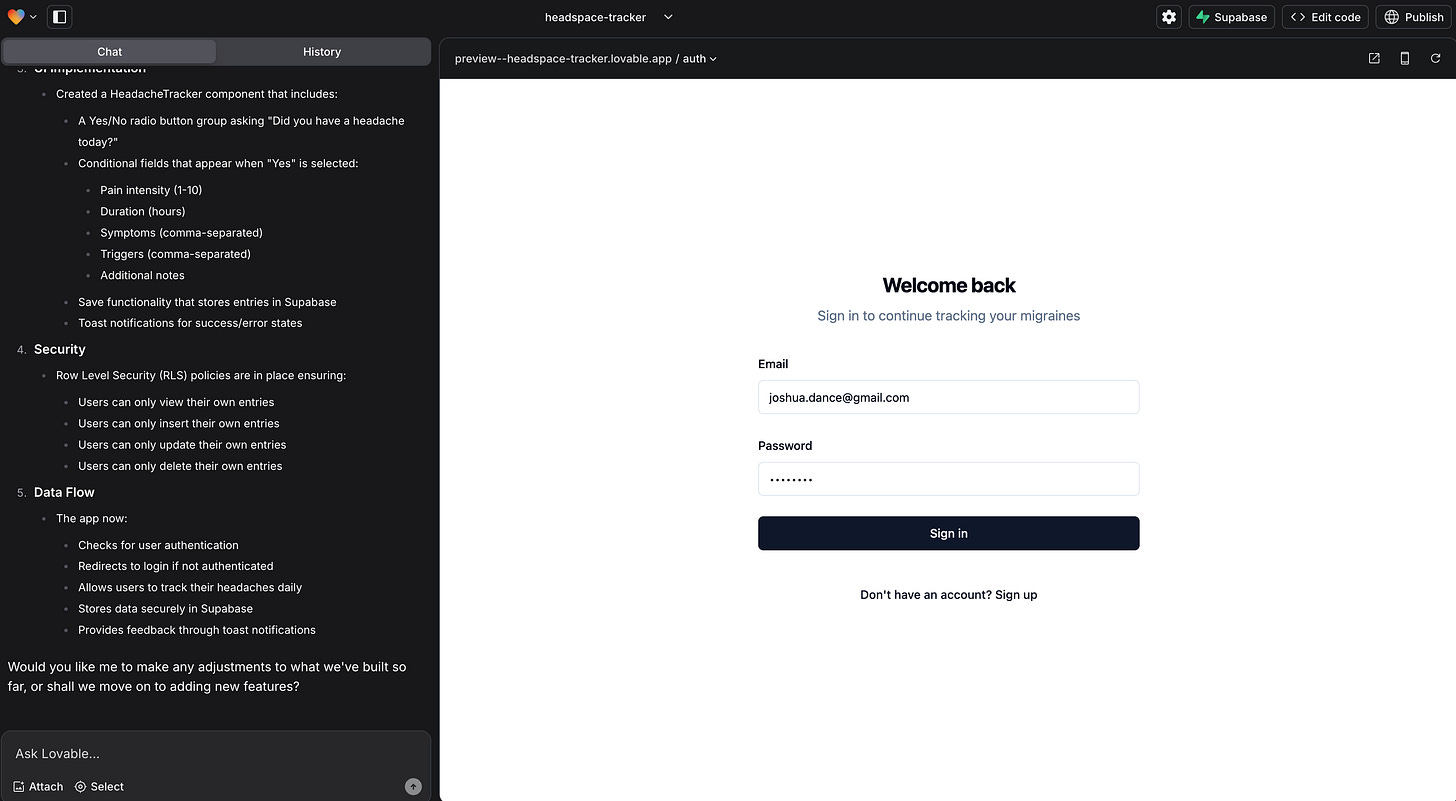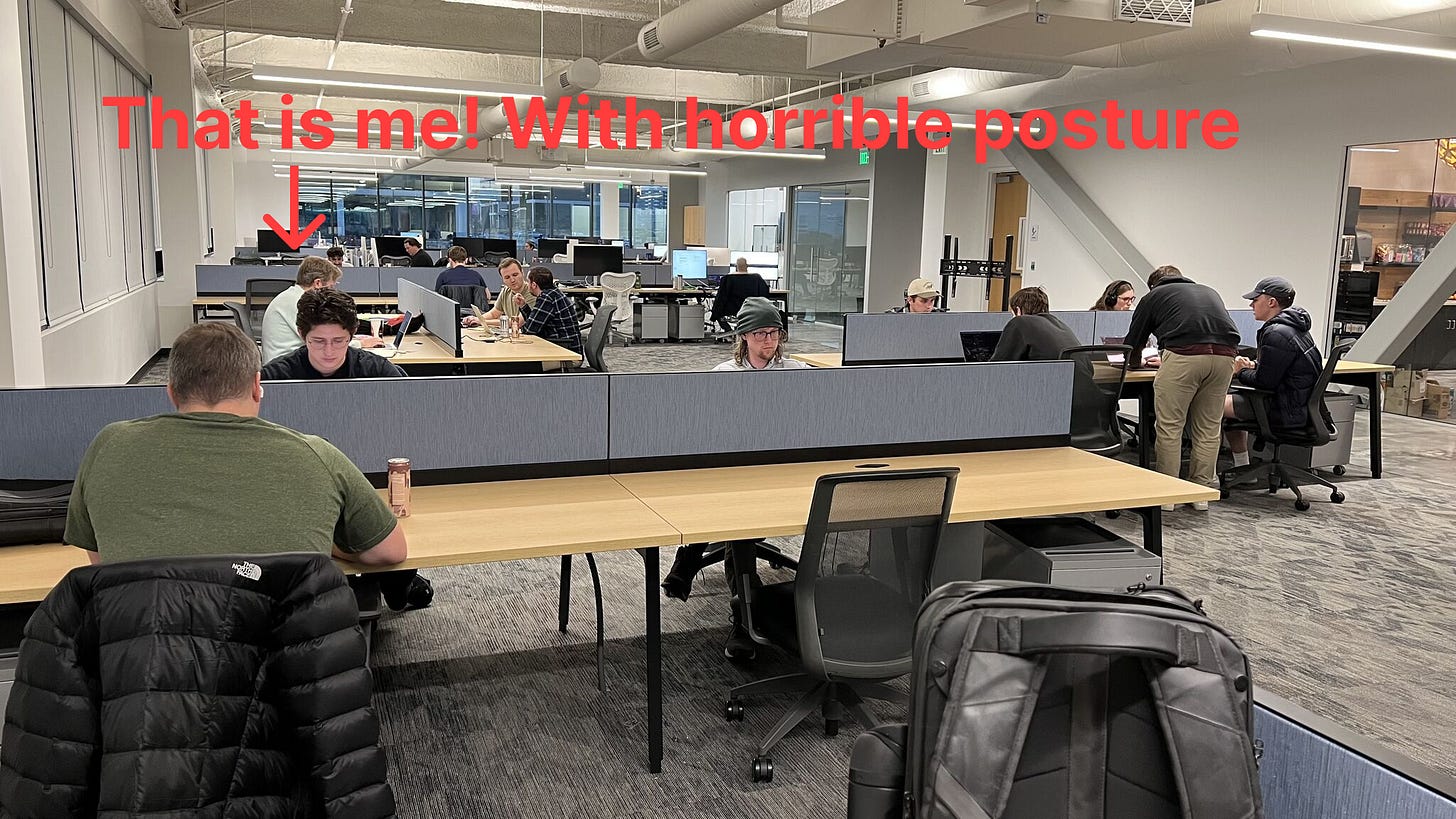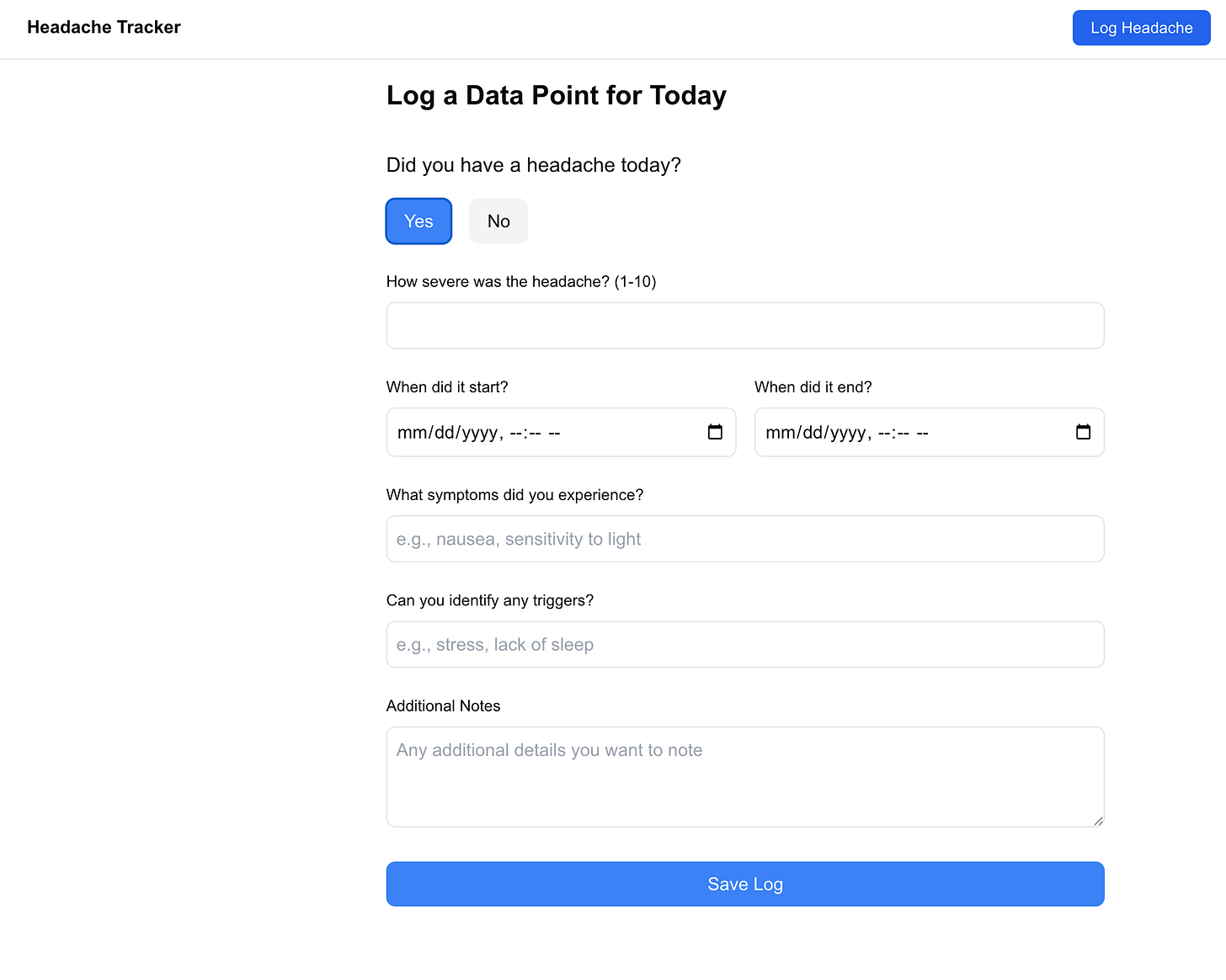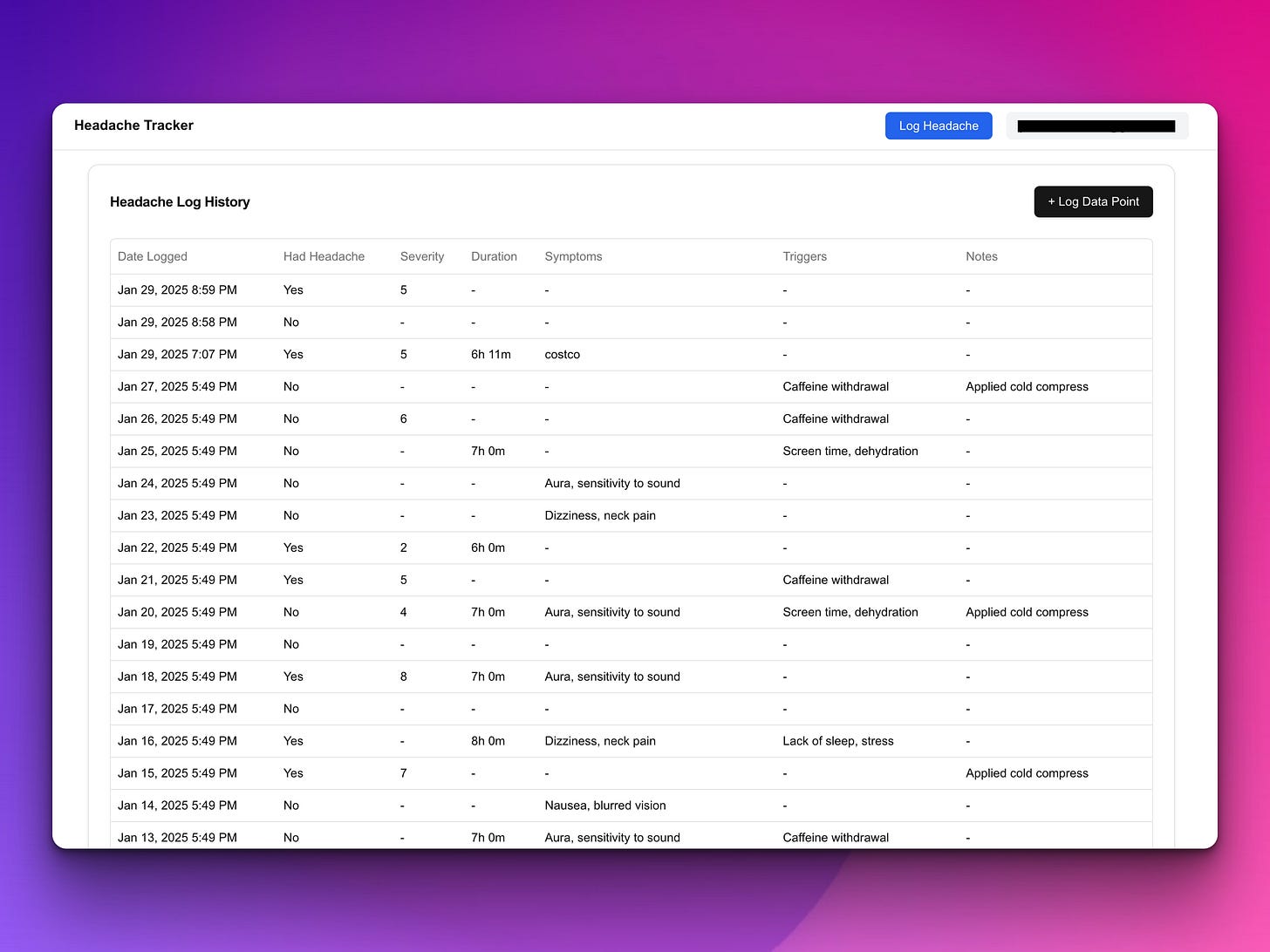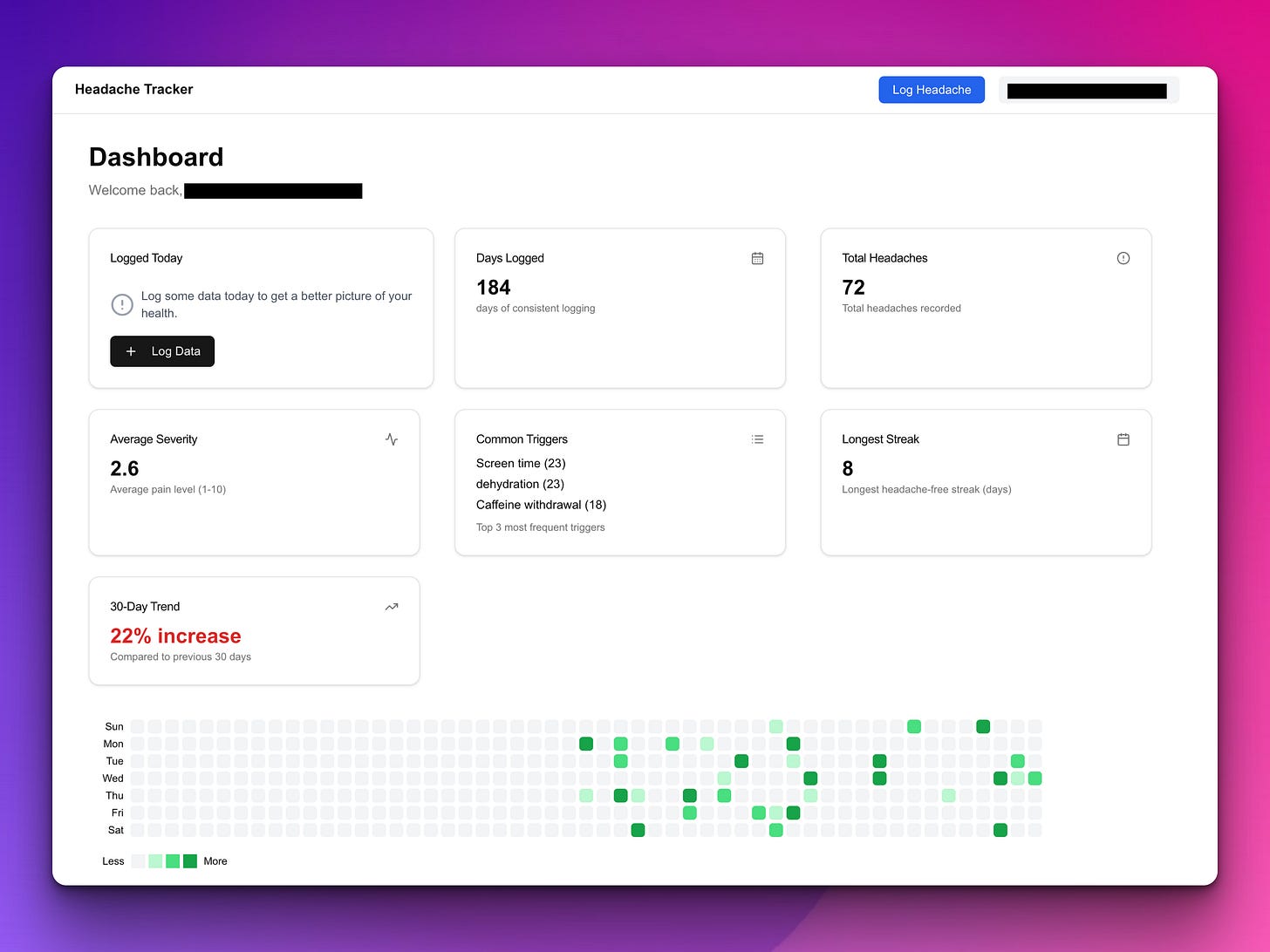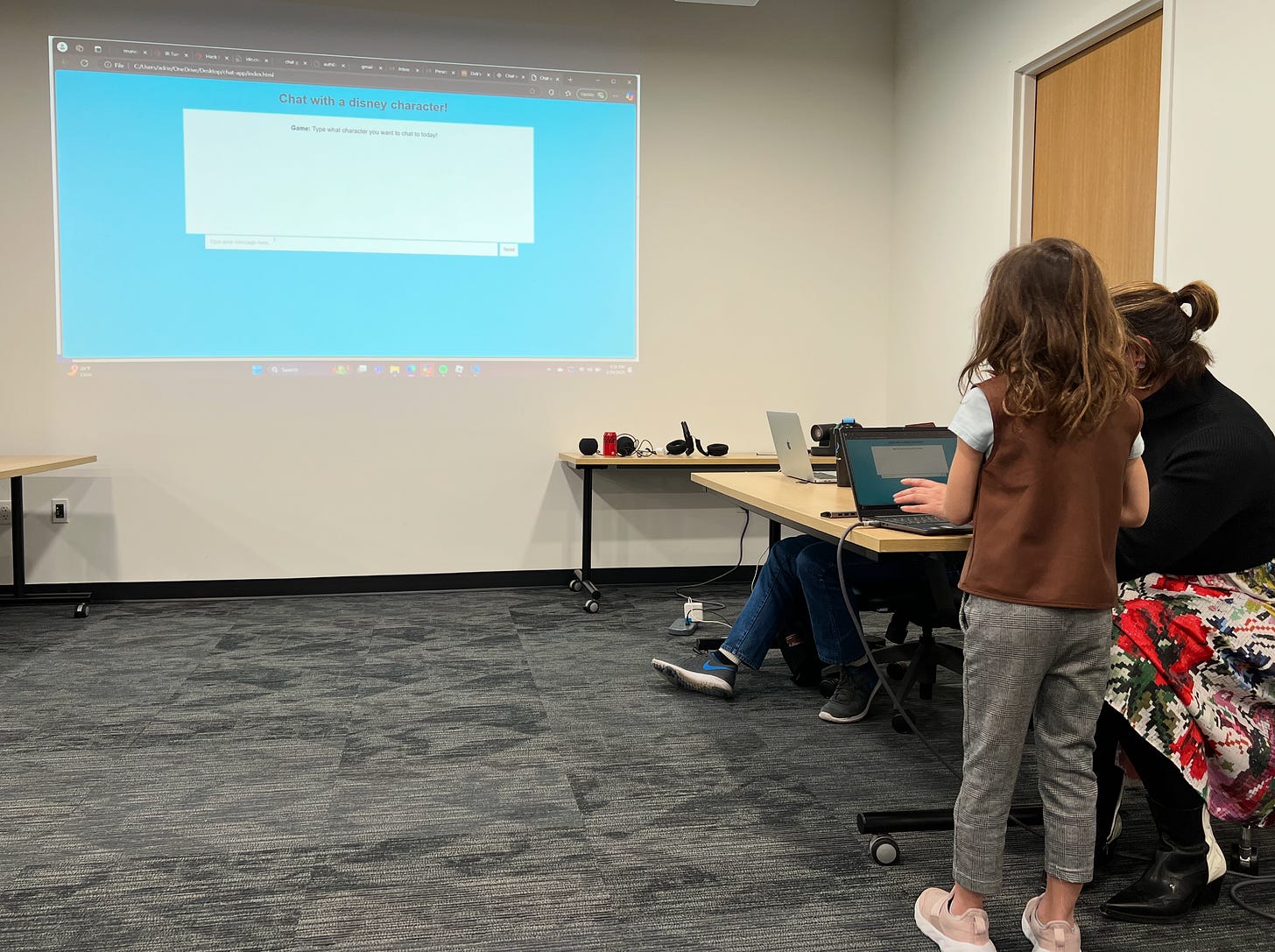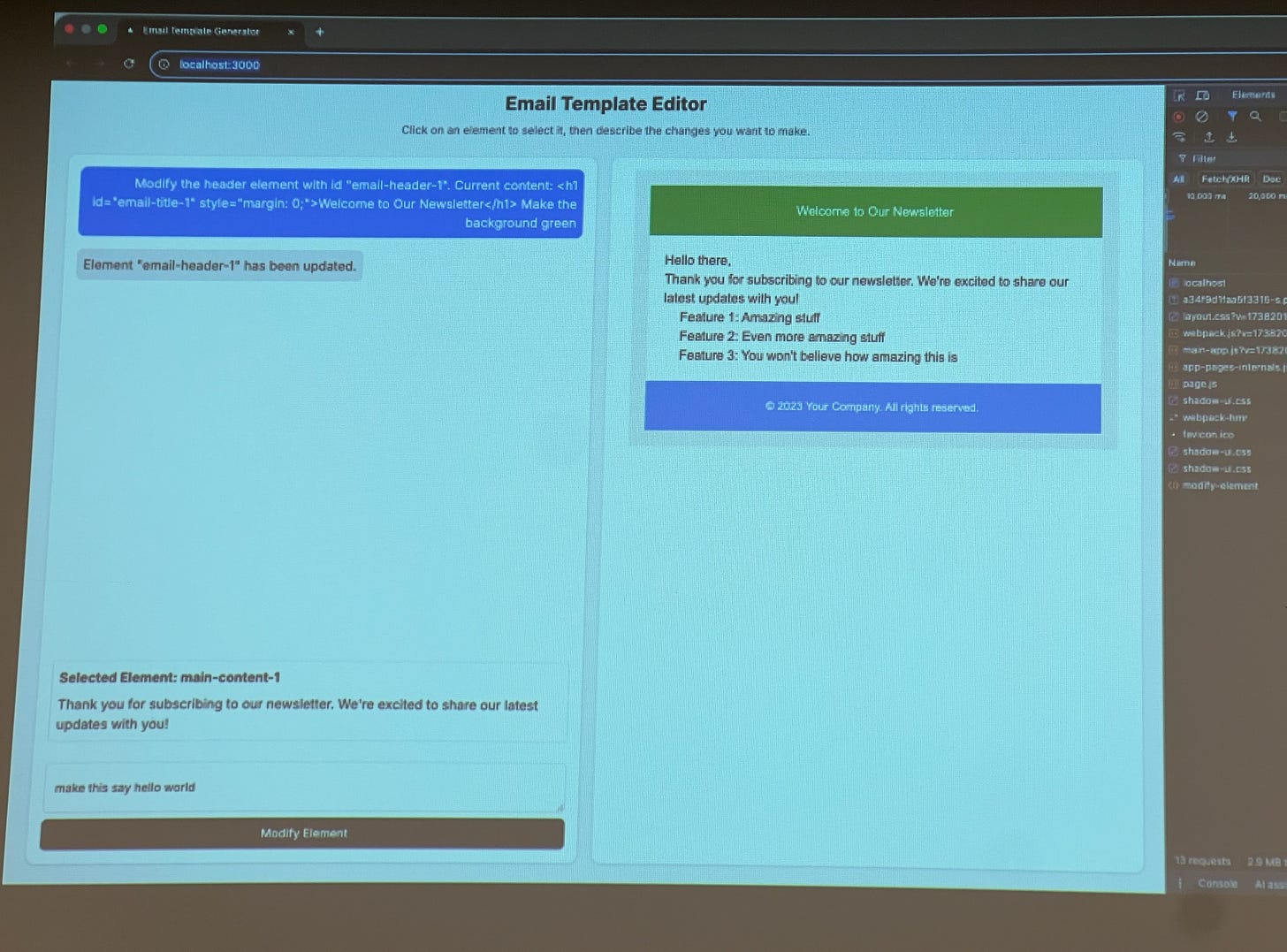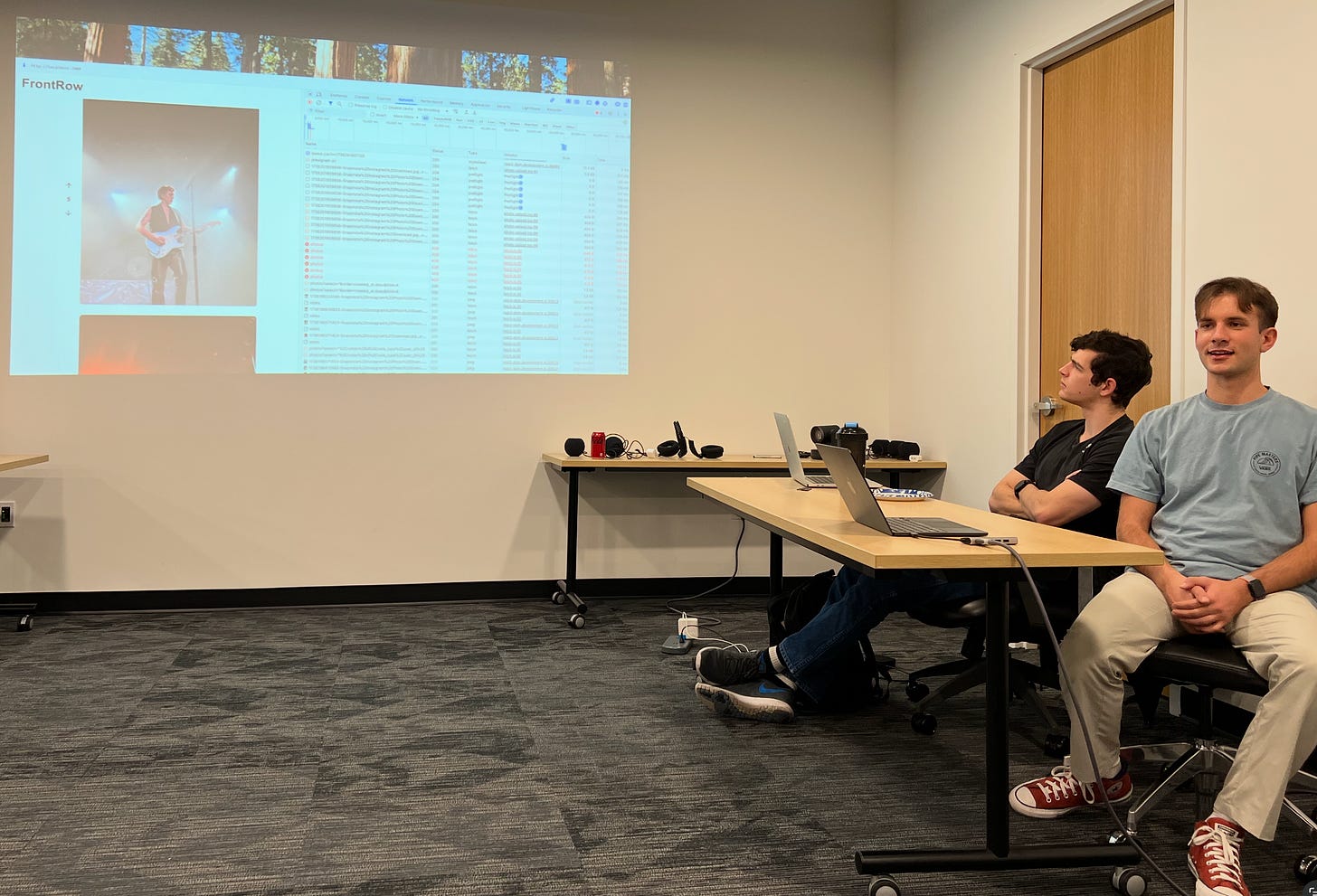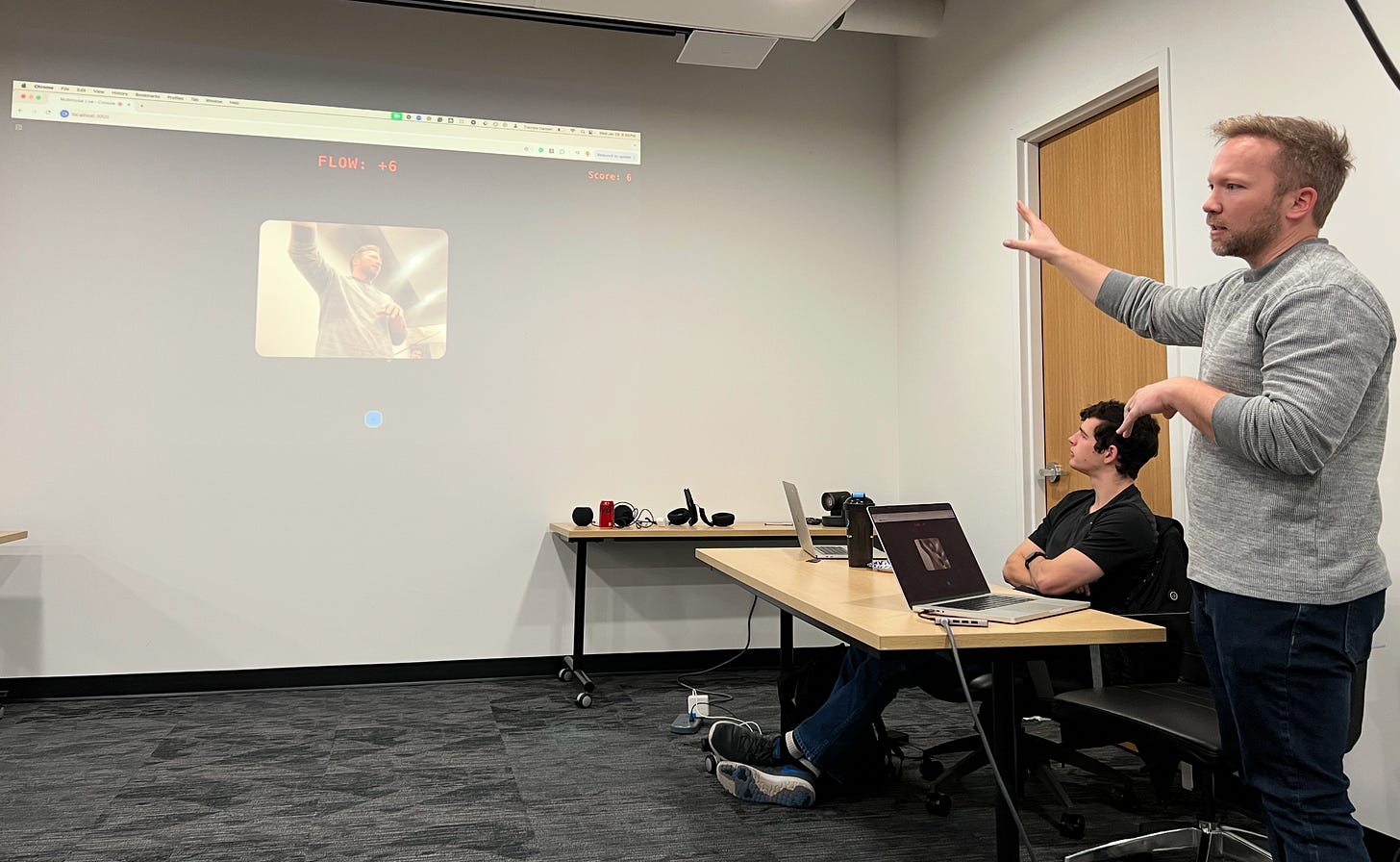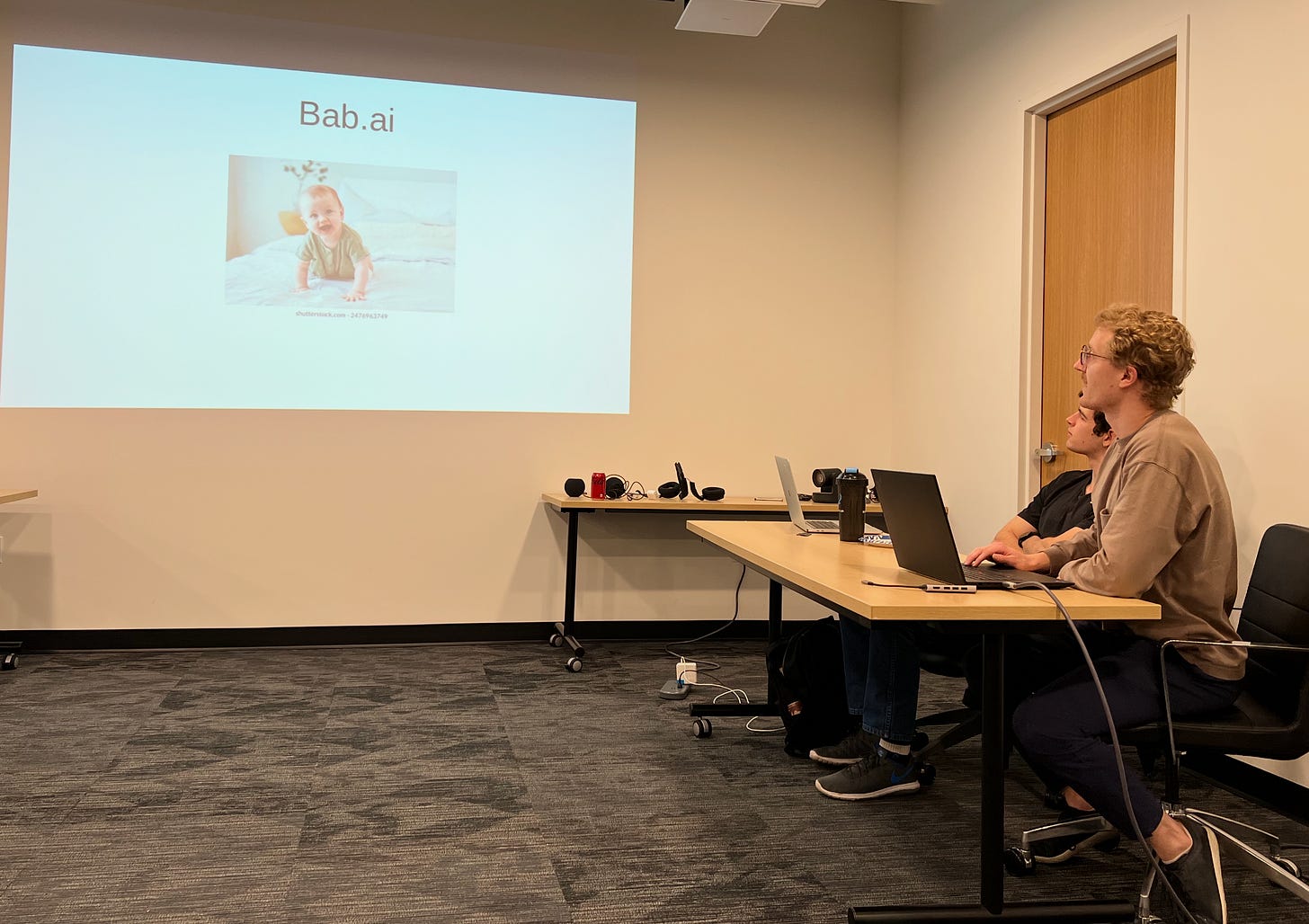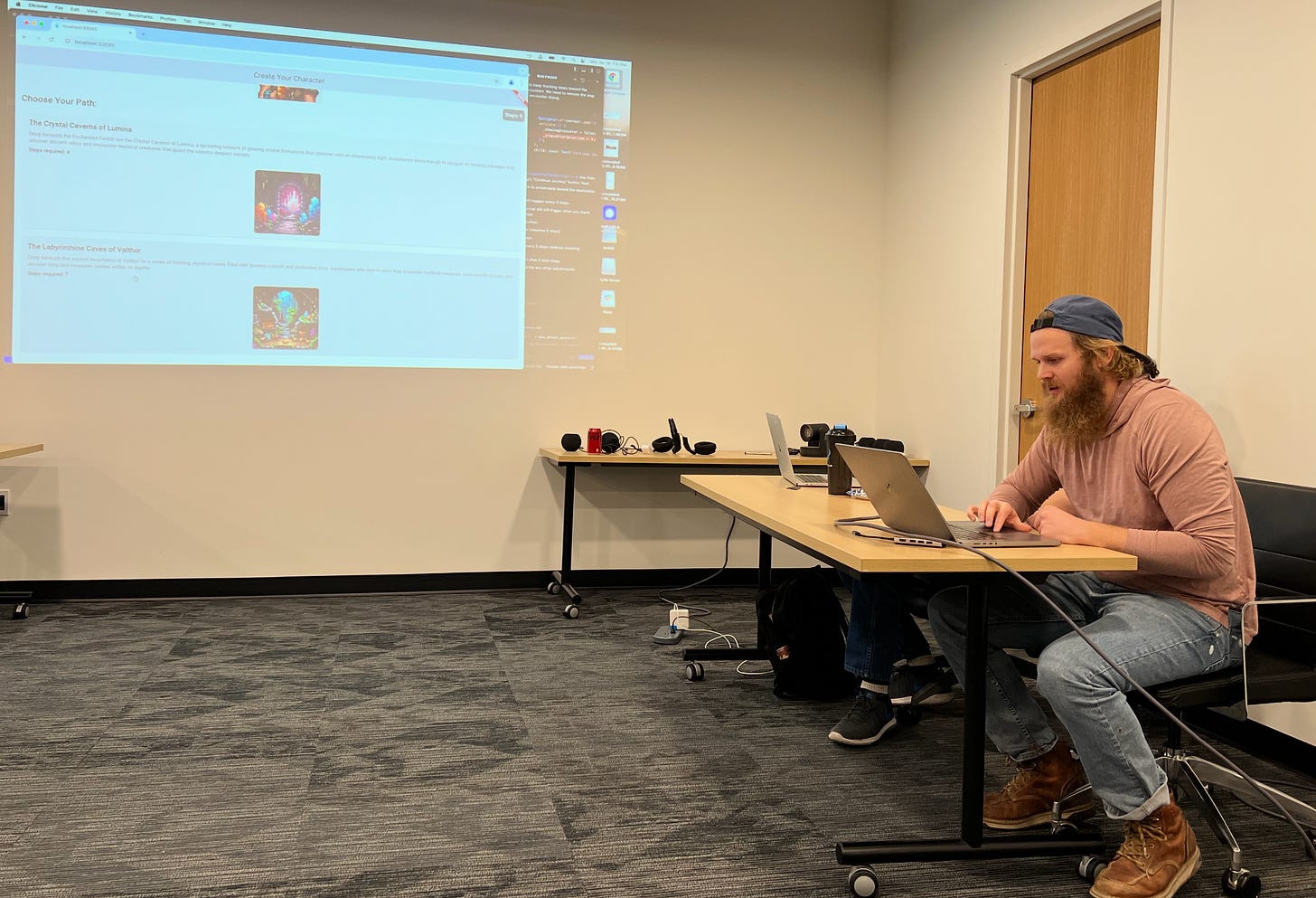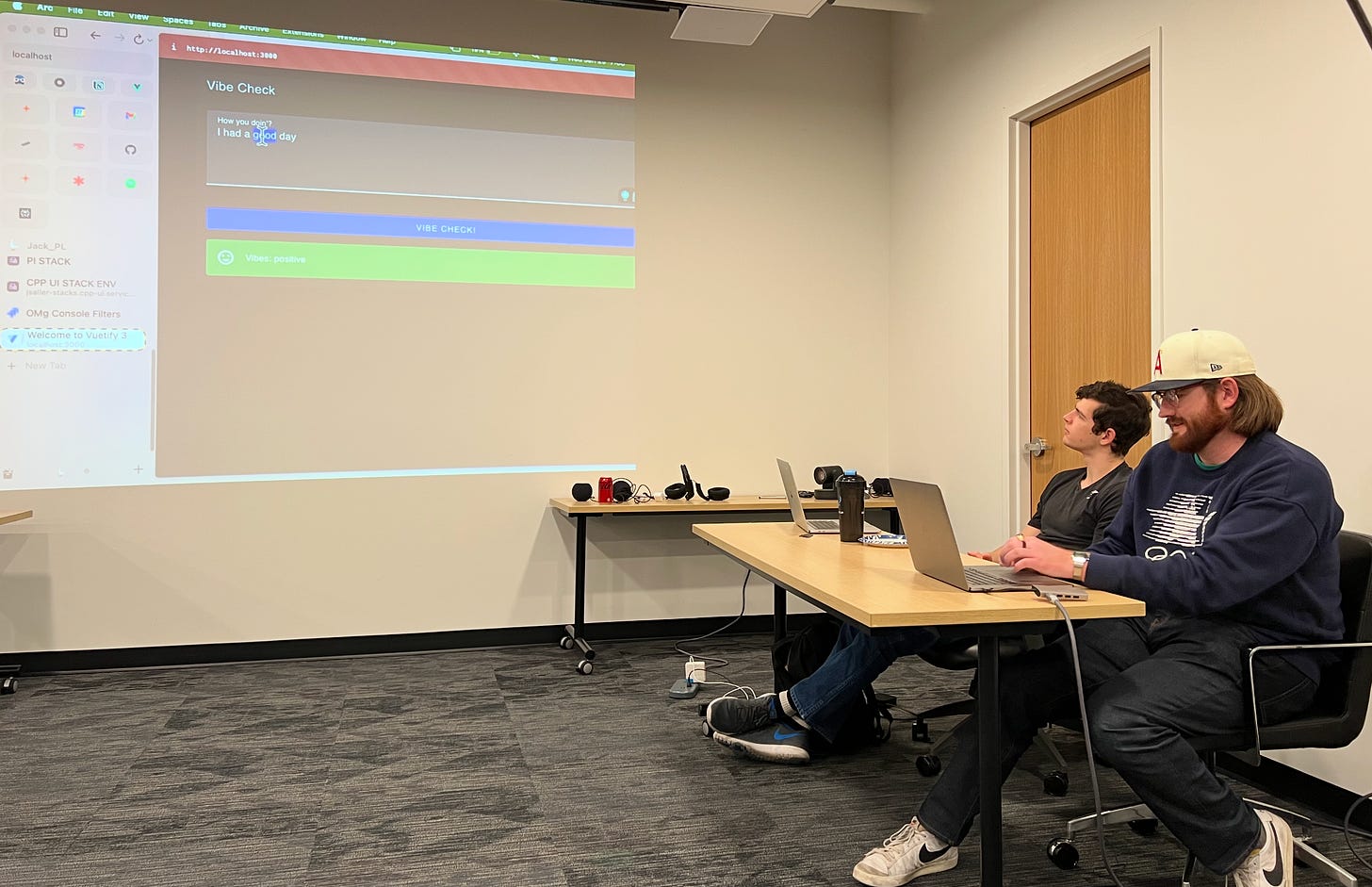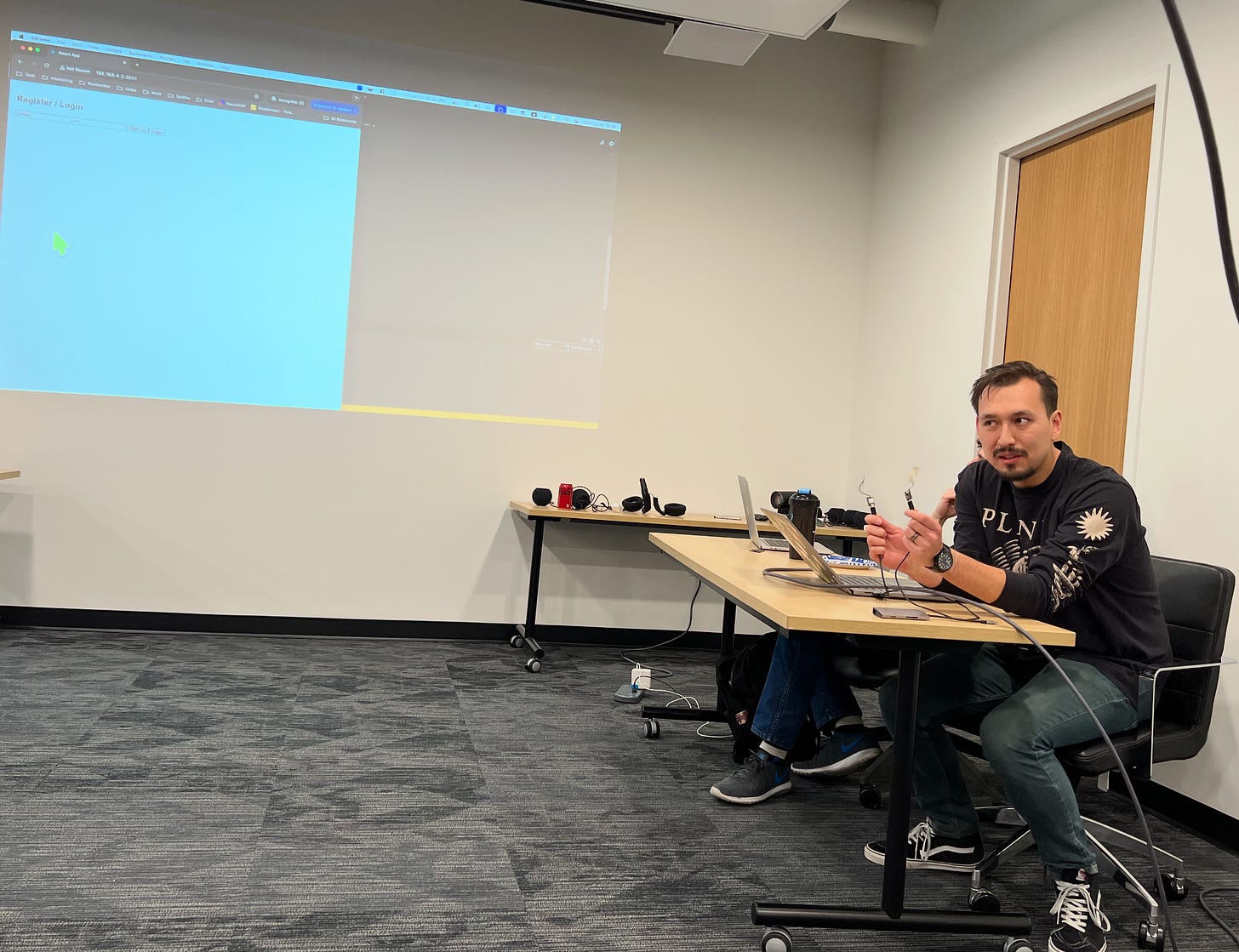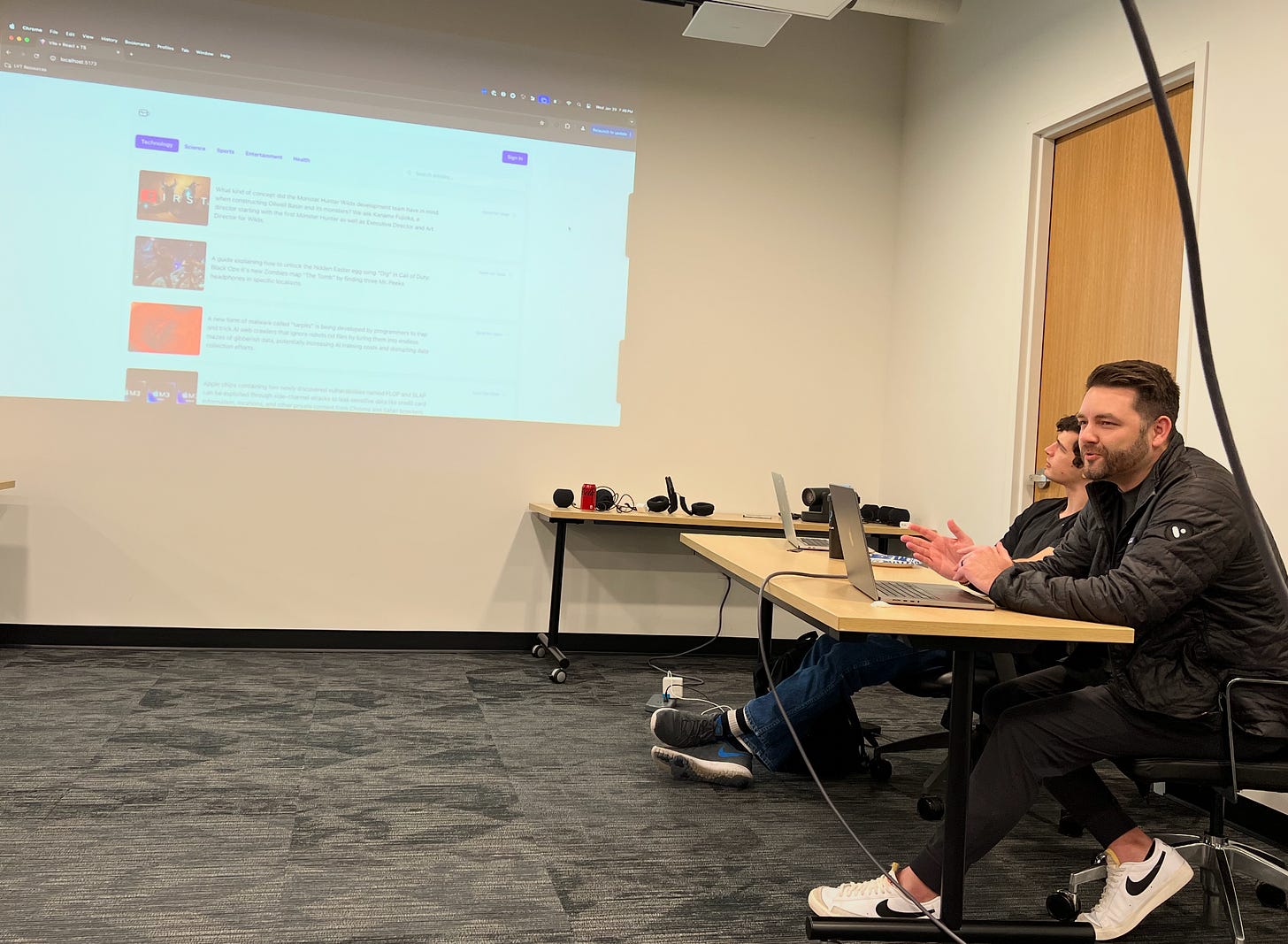I competed in utahs shortest hackathon, and it taught me a lot about building apps with AI
the future is going to be wild
This week I competed in the Utah’s shortest hackathon. It was hosted by Buster and Remi, as part of Utah Tech Week.
Clearly modeled after Vercel’s ‘world’s shortest hackathon’ that happened a week ago. it was a great setup.
The rules were simple:
Hacking starts at 4pm, demos start at 6pm.
Individuals or teams of two
Start from an empty repo (no starters and no copy and paste pre-written code)
You can prep prompts, API keys etc
Make sure you can demo, no deploy needed
Judged on innovation, functionality, and presentation
With that the field was set. We had 2 hours to build something from scratch, using as much AI as possible.
There were about 45 people who attended. We spread out at various open desks and people locked in.
I have been teaching myself to code for 4 years now. I am very proficient in React, Nextjs, Supabase, and Vercel so I wanted to stick with that stack.
However, since it was a new hackathon about the new world of AI tooling (full article I wrote about those here), I decided I would try out some new tools.
Bolt.new = still not ready
I’ve heard a lot of great things about bolt.new
A few days before the event, I started kicking the tires to see if I could use it to make my app.
I was impressed by how easy it was to prompt it and get the preview of the app it was creating.
Everything was going great until I tried to connect to Supabase.
Which is funny because bolt itself recommends Supabase in the prompt results, even though it can’t do it. Someone wrote up that bug here.
So sadly I turned to my next up on the list, lovable.
Lovable.dev false start
Lovable was able to create a simple app using Supabase as the database and authentication from a couple of prompts. It was just as easy to use as bolt.
However, I found two issues that stopped me dead in my tracks.
Lovable only creates code using Vite
You have to publish your code to Github to see the code at all.
I don’t know Vite. And I don’t want to try to learn a new framework the day of the event. On top of that, lovable only shows you code when you publish to github. For a 2 hour sprint, it felt like if I needed to jump into code to fix something, I would have to do a export to github, download, edit, reupload, re-import into lovable dance.
So I went back to my familiar tech stack of Nextjs, with the AI tools of Claude and VSCode + Github Copilot, and a little v0 sprinkled on top.
Off to the races
I started of by asking Claude to create a Nextjs React app with a Supabase backend from scratch. It gave me the step by step instructions to start off running create-next-app@latest and the other things. In about 15 minutes I had a working React app, and about 5 minutes more I had it pushing and pulling data from Supabase.
I then setup sign up and login, and jumped to the main page of the application, where a user could log a headache.
The crazy thing about AI is when you prompt it for something, it includes things you didn’t specifically ask for, that make total sense.
I asked for a headache logging page, and it added the triggers and additional notes as part of the data and UI.
I setup a page to view all the logged headache.
Then moved onto the ‘wow’ factor which was the dashboard.
I would pull all the logged headaches, then give the user analytics about them.
With about 30 minutes to go I added additional metrics, and got a snack. Then pedal to the metal making sure I was saving a working version all along the way.
It felt like minutes had passed, but the two hours were up.
AI tools really are a huge productivity boost. Even thought I did it, I find it incredible that in two hours I cranked out a complete migraine tracking app with full sign up, login, track migraines, get analytics about it all real and working.
Then it was time to present.
Utah’s shortest Hackathon Project Projects
(I took notes on every project. If I missed yours, hit me up and I’ll update the post!)
Our first presenter was the youngest hacker, a Girl Scout who made a ‘Chat with Disney’ page using ChatGPT. Enter a character name, get back their catch phrase. She demoed then showed her Girl Scout Cookie sales page QR code. I hope she crushed in cookie sales.
Alyson - Made a Powerpoint Dashboard insight generator. It would create a link you could embed on a Powerpoint that when clicked would feed business data from the powerpoint into ChatGPT to get insights.
Josh - Made a ‘prompt to 3d terrain generator’. He would describe a landscape and get back a threejs environment that you could fly around in. It couldn’t do water, and the main object was trees, but it was a super cool demo for the time he had.
Matt tried to make a Minority Report video feed, where he could move around tiles in realtime, and it would sync to another screen. He used Framer Motion for the animating of the tile.
New Neo - Made page to pull analytics about your crypto wallet. Unfortunately hit a bad bug so we didn’t get to see the analytics but tackling a crypto project in 2 hours was awesome and ambitious.
Jens - Made a "how to guide" generator. Give it any topic and it would make a step by step how to guide with images. He was using Dalle API so sometimes the pictures made no sense, but it was a great demo.
Senda - Built an email template editor with AI. So you could click on a section of your email, enter a prompt and it would edit it.
Scripts Via Text - Made a texting endpoint where you can text it commands, and it would run them.
Kevin - Built Front Row, a shared photo upvoting tool. Get a link, upload your photos, and everyone else can upload theirs to share and upvote the best ones.
Travisse - Realtime dance grader from video feed. Using the webcam it would watch you dance, and give points for how you were doing. Travisse said it was really hard to get the AI to give a rating, instead it just wanted to describe what was happening instead of grade it.
Nathan - Made Bab.ai an API for baby to english translation. Type in goo goo, and it would output ‘mother I am hungry’. It was actually a fully working API which was impressive to get to in 2 hours.
Jake - Made a dynamic Pokemon Go that generates missions over time with AI. It uses a Flutter API to track your steps, and retro diffusion model to create character images and then pops up scenarios as you hit step goals.
Josh Dance - Hey that is me! I built the Migraine Tracker.
Jack - Vibe Check. A Spotify song recommendation based on your current mood. Type out what you are feeling, and it will define your mood and use the Spotify API to recommend a song.
Dallin - AI journaling assistant w/ voice. Using ChatGPT voice mode, he could talk about his day and it would ask him specific questions and write it down.
Stacks - upload pdfs and it auto organizes them into stacks
Taeyang & Yirang - Create a very impressive demo where you could enter prompts to get an AI data scientist. You would describe that you wanted to optimize for, and it would generate the HuggingFace model and upload it for you. The internet was a bit slow for large model moving but a very impressive demo.
Nate - Built a collaborative 20 questions game where everyone submits clues, the AI creates the hints, then everyone guesses and it gives out points. We all submitted clues live and it worked and didn’t crash. Live demo achievement award.
Mattia & Elijah - Built General Grant, which would auto-generate grant application details from a google form response. Grant writing is tedious but important work, and this was a great use of AI. And they won my award for most enthusiastic presentation.
Calahan - Was the demo I was most impressed with. He didn’t know how to code, had never created anything, and he demoed his homeowners maintenance app (built entirely w/ Lovable). That takes guts to show up and ship something and he crushed it.
Dennis & Brett made an LLM-powered Privacy Policy audit for SMS sending. They are founders of the YC company Surge https://surgemsg.com/ This was really cool because as part of my proejct I wanted to send SMS reminders to fill out the tracker, but Twilio was hard to register for. They called that out, and explained how the registration process is hard and if your privacy policy doesn’t align to what the carriers want, they will reject and you have to do it again 2 weeks later.
Andrew - mission emails to PDF builder. Missionary journal creator via Gmail
Beric - Built a chat app deployed on 2 microprocessors.
EasyCRM - Custom CRMs for SMB verticals. Tell it what type of business you are and it would auto generate an interface for your verticla.
Dallin & Jesse - Customized resume builder based on job description. Paste the job descripiton, paste your resume and it would rewrite your resume to better highlight how you fit the role.
🧑💻Daniel & Antonio - Built Pulse, a news article suggestions + summaries. They ingest a new API and generate a one sentence summary. They built it entirely with prompts nothing coded by hand.
Kyle - Made a prompt to sound machine/white noise generator. You could mix the channels and it was very soothing.
Keifer - Made a business idea generator based on google search trends. Find a trend, and get ideas based on it.
Zack - SMS Pigeon. He built an SMS QR code generator. You enter the text and scanning the QR code would pop a prefilled text message. He tried to only use prompts as well and did it with the exception of a tiny piece of jQuery he had to add.
Utah’s Shortest Hackathon Winners
After the judges deliberated, the 3 winners were annouced. They were:
🥉 3rd place - Nate's AI generated 20 questions game! 🤔 Well deserved. He demoed live 🎯, it actually worked ✨, and it had the client and server and game host and participant screens all working! 🎮
🥈 2nd - Beric's micro controller hosted chat app! 💬 He joked that you might be able to sell a SaaS app by selling them a 10 dollar microchip 💻. He might be onto something! 💡
🥇 1st - Jake won 1st place with his Pokémon Go style step counting app! 🚶♂️✨ Gotta catch 'em all while staying fit! 🏃♀️🎮
Congrats to all the winners! I want to play the step counting game!
Takeaways
In 2 hours, people built what would have taken days previously. People with zero experience building apps were able to create things they were proud of.
It was the first hackathon I attended where the presentations took almost as much time as we spent building.
There was a fun sense of camaraderie. A few demos didn’t work and people would yell out helpful suggestions. When Dallin & Jesse’s demo took nearly 30 seconds to load and it finally did everyone gave a huge cheer.
The tools everyone used weren’t super exotic. It was mostly:
Cursor
Claude
DeepSeek
ChatGPT
Lovable
The audience was mostly programmers. I mean it was billed as ‘Utahs shortest hackathon’ How many non programmers even know what a hackathon is? But I think this format should be taken to all groups of people. I would love to see what a bunch of non programmers could make with bolt or lovable.
We are rapidly moving into a world where anyone can code. I wrote a whole 5k work article about all the various AI coding tools, check it out on my other newsletter here.
One of the hosts Blake Rouse has a great write up of the event as well, read that here. I got most of the LinkedIn links from him, thanks Blake!
Here is all the photos I took from the night:
